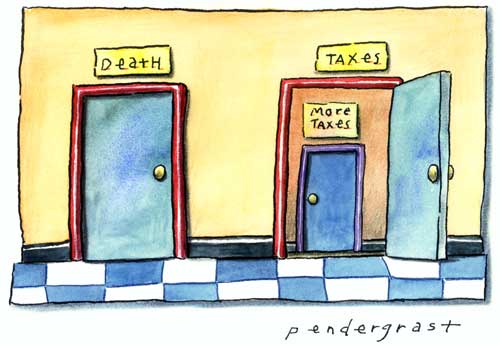Matthew 22: 15-22
“Render unto Caesar the things that are Caesar’s: and unto God, the things that are God’s”.
And so they conspired to put to him their needling question “Are we, or are we not, permitted to pay taxes to the Roman Emperor?” They were as ingenious as anything invented by the bright young inquisitors of our modern television screens. If Jesus had said ‘yes – you must pay the Roman tax’ – then he would have been finished as far as the nationalists and the general public were concerned. If Jesus had simply said ‘no – you mustn’t pay the Roman tax” – he would have been denounced to the Roman authorities by the collaborators.
Notice the terms in which the inquisitors seek to flatter Jesus: “Teacher, we know that you are a sincere man; you teach in all sincerity the way of life that God requires, courting no man’s favour, whoever he may be”. The bland softening up technique is all too familiar: was is less familiar in our own days the recognition by politicians of honesty and plain speaking as an admirable rather than a threatening characteristic.
Jesus refused to be trapped. “Are we, or are we not permitted to pay taxes to the Roman Emperor?” He returned the question to his interrogators with a sharp brilliance which suggests the naivety is not the first of Christian virtues. “Show me” he said “the tribute money”, and they brought him a penny. Penny here is a mistranslation, coins equivalent to our pennies were, in fact, minted locally in Palestine, but they bore neither image not superscription. What Jesus asked for was a Roman silver piece, the kind used for paying the tax. They immediately produced one and in doing so they answered their own question: for simply to possess the foreign coin was to recognise the Emperor’s authority.
And for us – notice four things here.
First – he himself was far from meek and mild – he exposed his opponent’s hypocritical clap-trap.
Second – he refused to become a pawn in the sordid manoeuvrings of two major political parties. Religion needs distance and perspective and judgement.
Thirdly – he recognised the reality of the political situation and the authority of the state in its own sphere. We are to work out our discipleship in the world that is given to us.
And fourthly, and finally – he asserted that this sphere was limited and that over and above the authority of governments and the authority of God, to whom we are bound in obedience.
“Render unto Caesar the things that are Caesar’s: and unto God, the things that are God’s”.
People like ourselves, bearing the image of God our Creator, are designed to serve God’s purpose of love. We are made by God for God; he is our hope, our journey and our journey’s end. In the words of St. Augustine “Thou hast created us for thy self, and our heart is restless until it finds its rest in thee”.
There is nothing so certain as death and taxes!


